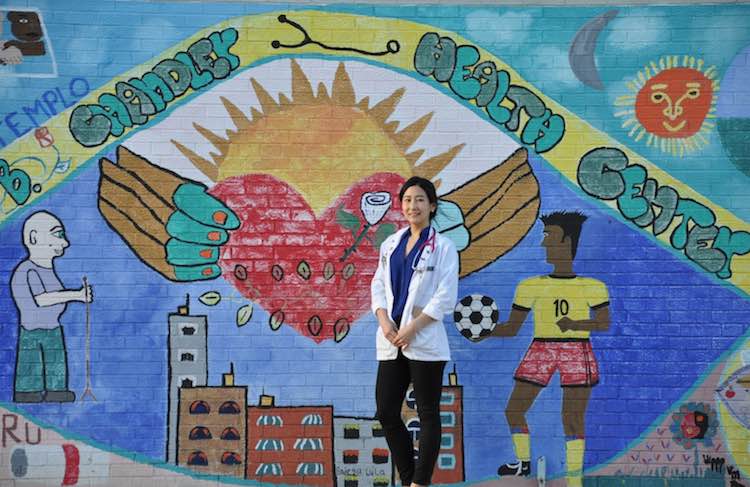Stephanie Oh knows what it’s like to live below the poverty line.
After graduating college with a degree in bioengineering, she volunteered for AmeriCorps and subsisted on food stamps. But today, Oh gives pays it forward by using her medical education to provide free healthcare to homeless populations.
LOOK: Guy Gives Shelter Dogs Free Haircuts to Help Them Get Adopted
“When health care students become knowledgeable about the people they serve, they are better able to practice patient-centered medicine,” says Susan Giordano, HIPHOP program coordinator. “Our goal is for student leaders to promote and advocate for the community by instilling humanism in medicine.”
As of the 2010 census, approximately 34% of New Brunswick residents lived in poverty. Each summer, Giordano runs an internship for HIPHOP’s incoming student leaders that introduces them to partner organizations and takes them on a community tour to teach about the logistical challenges for residents with no cars on tight budgets—eating healthy, accessing medical care and obtaining support.
“The tour is eye-opening,” says Gloria Chen, CHI student director and second-year medical student. “It makes us aware of how difficult it is for our patients to have healthy lifestyles. There are a lot of services they can’t access since they don’t have transportation.”
RELATED: Woman Changes Homeless Man’s Life After He Stood on Same Street Corner for 3 Years
As the clinical arm of HIPHOP, the student-run Promise Clinic provides free primary care services at Rutgers Eric B. Chandler Health Center to the uninsured adult clients of Elijah’s Promise community soup kitchen. Over the past two years, the students have raised more than $30,000 to help cover medical expenses.
Each year, approximately 45 teams of four to five medical students see patients under the supervision of faculty advisers. The teams – composed of first- through fourth-year medical students – care for the same one to two individuals throughout their medical school experience. In addition, patients also see students from the interdisciplinary practices as their care warrants. Since its inception, the Promise Clinic has seen about 600 patients, who visit once every few months.
CHECK OUT: Rick Steves Sacrifices Nest Egg to House Dozens of Homeless Women and Kids
“By providing a continuum of care to the same patient over four years, students gain a strong knowledge of the patient’s condition and form a bond,” Oh says. “It’s a rare opportunity for students to care for a specific patient in a very personal way. I have seen student doctors spend hours arguing with pharmacological companies to lower the cost of medicine or advocate for patients with charity care.”
As a result of their experience, many students remain in primary or family care, Oh says.
Click To Share With Your Friends (Photo by Jacqueline Gonzalez)




















